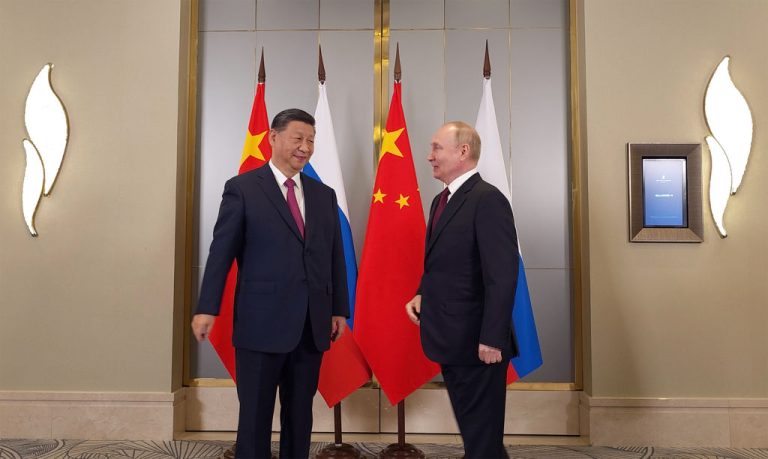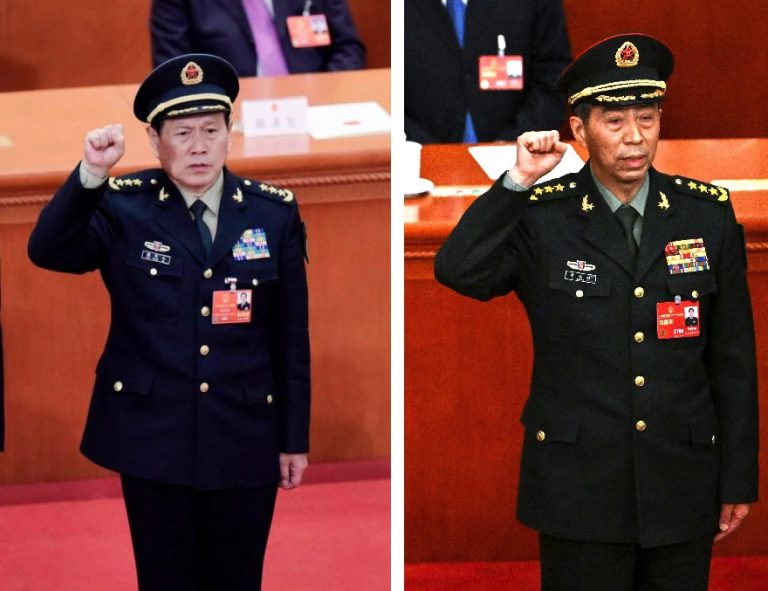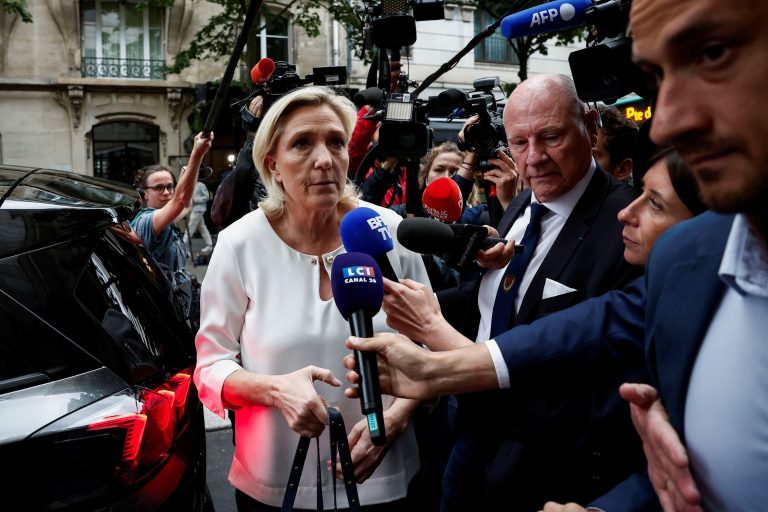Amid escalating global tensions and increasing scrutiny from the West, Russian President Vladimir Putin and Chinese leader Xi Jinping banded together in a show of stability and strength at this year’s Shanghai Cooperation Organization (SCO) summit.
Held in Astana, Kazakhstan on July 3rd and 4th, the regional security bloc meeting underscored the evolving geopolitical landscape where the two nations were expected to present a united front against Western influence.
In their addresses at the summit, both leaders emphasized the expanding membership and the pivotal role of the SCO in fostering a multipolar world order. President Putin highlighted the SCO’s contribution to “a fair multipolar world order,” by stressing that their cooperation is not aimed against any particular entity but is instead focused on the collective interests of their peoples.
RELATED: US Expands Sanctions on Chinese Firms Supplying Russia’s War Effort
Xi echoed these sentiments as he highlighted the importance of their longstanding friendship and the need to uphold it amid a “turbulent international situation and external environment.” Xi also referred to Putin as “an old friend,” and underscored the strategic planning for future bilateral relations.
A stabilizing force
Success
You are now signed up for our newsletter
Success
Check your email to complete sign up
Xi and Putin’s meeting — their second in two months — comes as both nations face significant pressure from the West over their regional and international policies. This latest interaction further cements the narrative of a Sino-Russian alliance that is both strategic and deeply personal.
The SCO, founded by China and Russia as a counterbalance to Western power, includes several Central Asian nations along with India, Iran, and soon Belarus. Since Russia’s invasion of Ukraine in early 2022, the ties between Moscow and Beijing have strengthened considerably, marked by a “no limits” strategic partnership agreement signed just days before the conflict began.
RELATED: Vladimir Putin Visits North Korea in Boost for Growing Alliance
This deepening relationship is seen in the context of China facing accusations of assertiveness in the Asia Pacific region, particularly concerning Taiwan. Simultaneously, Russia is under severe international sanctions due to its actions in Ukraine, making its alliance with China even more critical.
Officially known as the Republic of China (ROC), Taiwan’s government was founded in 1912 but its forces were driven off the mainland by communist rebels in 1949. However, the Chinese Communist Party (CCP) regime views Taiwan as a renegade province and has long vowed to reclaim it by “any means necessary.”
Global implications
During the summit, Putin and Xi reiterated their commitment to their partnership, with Putin lauding the period as the “best in history” for Sino-Russian relations. Their discourse underscored the idea that their collaboration is a “stabilizing force” in a chaotic world.
“The organization has firmly established itself as one of the key pillars of a fair, multipolar world order,” said Putin, adding, “Our cooperation is not aimed against anyone — we are not creating any blocs or alliances — we are just acting in the interests of our peoples.”
The summit also saw Putin meet with Turkish President Recep Tayyip Erdogan, whose nation, despite being a NATO member, maintains significant trade and financial ties with Russia. Erdogan proposed Turkey as a mediator in the Russia-Ukraine conflict, advocating for a fair peace that could satisfy both parties. However, Kremlin spokesperson Dmitry Peskov dismissed the possibility of Erdogan mediating the conflict.
RELATED: Focus of German Foreign Trade Shifting From China to US, Experts Suggest
Belarus, a close ally of Russia and a key staging ground for its military actions in Ukraine, is also set to formally join the SCO later this year. Belarusian President Alexander Lukashenko remarked on the importance of the SCO as an “alternative international platform” that demonstrates the presence of different centers of power.
Divergent interests
Despite the unified front presented by Xi and Putin, the SCO’s member countries often have divergent interests among themselves. The competition for influence in Central Asia between Moscow and Beijing is a prime example. Central Asia, rich in resources, is pivotal to China’s Belt and Road Initiative, which is aimed at enhancing trade routes and expanding its global influence. Meanwhile, Russia seeks to maintain its historical influence in the region.
Nigel Gould-Davies, a senior fellow for Russia and Eurasia at the International Institute for Strategic Studies in London, highlighted that the SCO has “significant security differences” among its members. However, he also emphasized that the organization’s principal value lies in the optics of non-Western countries coming together, presenting an image of a cohesive bloc in the face of Western dominance.
Gould-Davies told the Associated Press that he believes the “principal value” of the summit is to show Russia, China, and its allies banding together to “grow its membership rather than by deepening its cooperation.”







